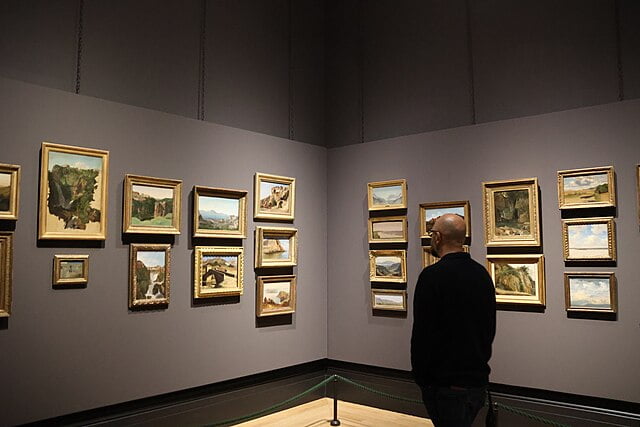Last month, Arts Council England (ACE) cautioned that funding could be withdrawn for organisations that produce “overtly political or activist” works.
This announcement was met with sharp backlash. Subsequently, ACE has released a series of statements explaining that their intention was only to “manage risk” with “good risk assessments”, rather than dictate output.
Yet this is all a little too late. The curtain has been lifted, revealing the establishment’s scandalous efforts to suffocate creativity and culture.
Impartial
For 75 years, the ‘impartial’ Arts Council England has supposedly championed free expression in its decision-making over what art will be deemed worthy enough of being anointed in their oil of state funding.
But the real politics of ACE are written on the wall. In the wake of Putin’s invasion, for example, the body issued three statements of solidarity with Ukraine. Yet it fell silent on the Bristol Arnolfini gallery’s decision to cancel screenings scheduled to take place as part of a local Palestine Film Festival.
Art Council England's statement on Ukraine.
The hypocrisy is astounding and also completely par for the course.
Zero shame. https://t.co/eyy8xL5bwz pic.twitter.com/mQWyMfUjg9
— Knox Mulder (@knox_o) February 13, 2024
Likewise, ACE chiefs say nothing when artists are attacked or censored by arts institutions. Recently, for example, the Barbican in London cancelled a lecture by Pankaj Mishra on the genocide in Gaza. But this was not met with any protest from ACE.
It is no coincidence that Arts Council England’s recent warning about “overtly political” artistic output came on the eve of the Department for Culture, Media, and Sport launching a full-scale review of ACE.
With Rishi Sunak and co. preaching about the dangers of ‘extremism’, in an effort to whip-up anger against activists and ramp-up repression against protestors, it is clear that the higher-ups at ACE have decided to toe the line.
Funding
As it stands, arts in the UK is balancing on a knife edge.
Under the Tories, funding for Arts Council England has been cut by a third since 2010. In Birmingham City Council’s recent bankruptcy budget, arts funding was cut 100%, with warnings that the city faces ‘cultural deprivation’ as a result.
Earlier this year, members of Equity and the Musicians’ Union in the English National Opera (ENO) were set to go on strike – some for the first time in 44 years – over precarious contracts introduced in response to ACE funding cuts.
In the end, however, redundancy notices were sent out to members mid-performance, after the unions abandoned their long-standing demand to ‘stop the cuts’, and instead accepted deals with ENO.
That ACE should warn against art that is too ‘political’ or ‘activist’ is laughable, given the sharp crisis that is bearing down on the culture sector, thanks to the Tories’ austerity agenda.
Expression
Art, by its very nature, is political. It reflects, critiques, and shapes the society of its time. To claim or demand artistic neutrality is to deny this fundamental truth.
And as Leon Trotsky noted, it is the decline of capitalism that sparks a yearning for ‘liberating art’ – what ACE may condemn as ‘political’ and ‘activist’ works, capable of challenging and reshaping the established order.
Artists must not be silenced or subdued by threats from Arts Council England, or from any other quarter of the establishment.
From ACE and Equity, to the big cultural institutions and artistic industries: all of these must be placed into the hands of the working class, along with society’s abundance of wealth and resources, in order to fund genuinely creative expression and help truly liberating, meaningful art to flourish.






